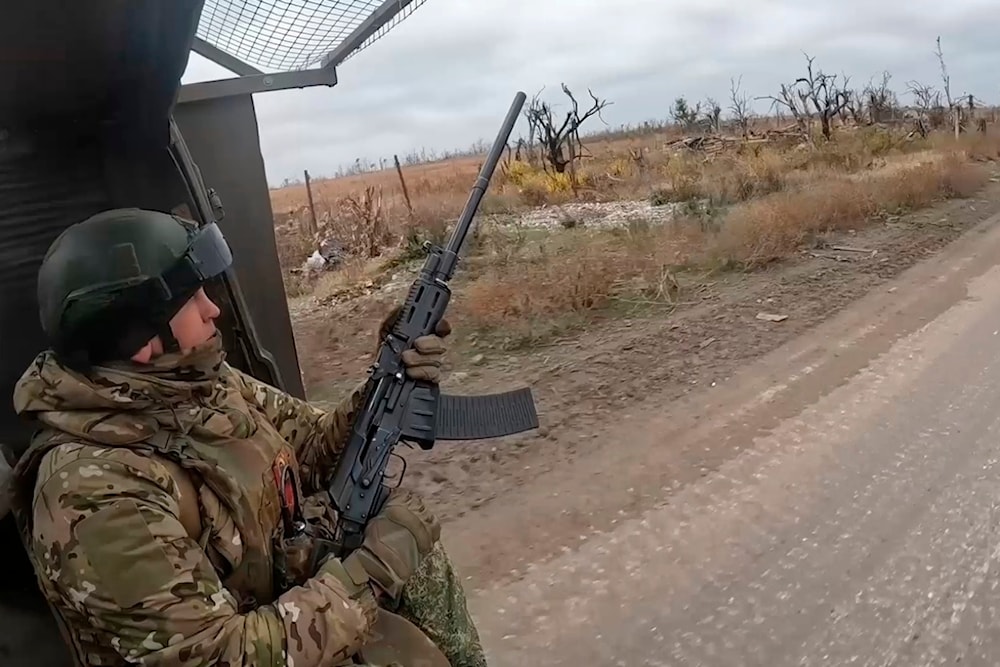Is Putin's missile test a power move before Trump reshapes the war?
Ukraine and Russia are both bracing for Donald Trump's uncertain foreign policy approach, writer Andrew Roth says.
-

In this photo taken from a video released by Russian Defense Ministry Press Service on Friday, November 22, 2024, a Russian engineer troops serviceman operates at an undisclosed location in Ukraine. (Russian Defense Ministry Press Service via AP)
An analysis published in The Guardian on Friday by writer Andrew Roth details the escalating tensions in the Ukraine-Russia war as Russian President Vladimir Putin seeks to recalibrate the conflict ahead of Donald Trump's upcoming presidency.
Roth examines Russia's launch of an experimental, nuclear-capable ballistic missile earlier this week, which he describes as a calculated move to remind the West of Moscow's capacity to escalate further if pressed.
The missile, thought to be a variant of the RS-26, was accompanied by Putin's address warning Western nations involved in the conflict.
Roth notes that this development comes as Ukraine and Russia maneuver to secure advantageous positions ahead of Trump's inauguration in January.
Prior Notice
The Kremlin reportedly provided prior notification of the missile test to the US, a gesture that James Acton, co-director of the Nuclear Policy Program at the Carnegie Endowment for International Peace, says was aimed at avoiding misinterpretation or unintended escalation.
"The prior notice was clearly intended to avoid it misinterpreting the launch and to mitigate the risks of immediate nuclear escalation," Acton said. "Indeed, I think it is very unlikely that Putin would use nuclear weapons given Trump's election and the likelihood that the United States will cease to provide aid to Ukraine."
Read more: Ukraine's military campaign 'derailed', forces 'ground down': Russia
Meanwhile, Roth highlights Ukraine's efforts to fortify its battlefield position as uncertainty grows over Trump's potential foreign policy direction.
Ukrainian officials have expressed concerns about Trump's unpredictability, particularly whether he will continue the robust US support offered by the Biden administration or take a more transactional approach in negotiations with Russia.
Pivotal Escalation
According to Roth, Biden's recent approval of long-range ATACMS missiles and other military support for Ukraine is part of an effort to strengthen Kiev's defenses before Trump's term begins.
However, the analysis points out that this aid comes late in the conflict and may not fundamentally change the balance on the battlefield.
As Roth explains, both sides are acutely aware that the months leading up to Trump's inauguration will shape the future of the conflict.
The missile test is meant to serve as a reminder of the stakes involved, Roth notes, adding that Russia has demonstrated preparedness to escalate further if necessary, even as Western nations remain cautious about their responses.
Read more: Ukraine's ATACMS could fire back at US: National Interest

 3 Min Read
3 Min Read









